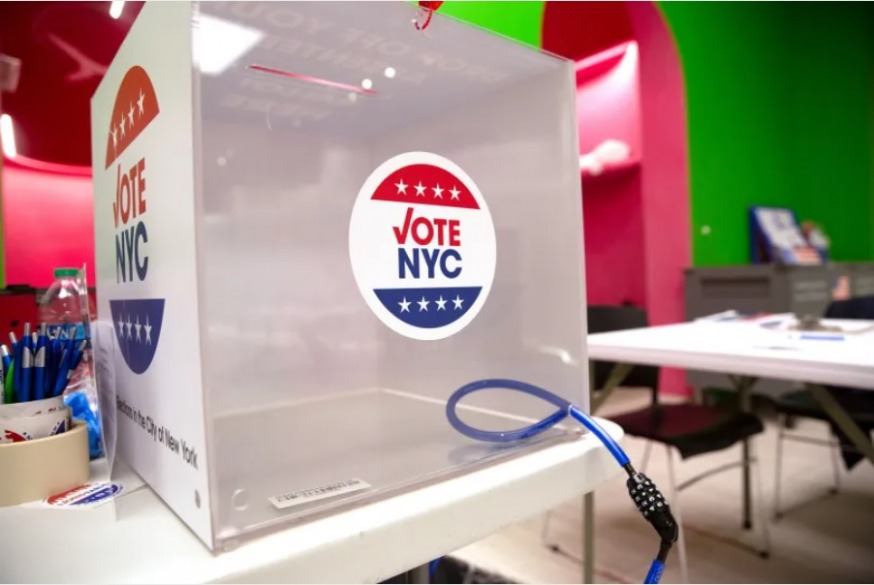
An absentee ballot box at an early voting site at Hudson Yards. Ben Fractenberg/THE CITY

This article was originally published by The CITY on Nov. 10
New York City voters approved four ballot measures this year, approving new funding for statewide environmental projects and three local proposals aimed at boosting racial equity in the five boroughs.
By a wide margin, voters in the city and across the state approved the Environmental Bond Act — Proposal 1 on this year’s ballot — which gives the go-ahead for the state to borrow $4.2 billion to pay for a number of projects to protect New York from more extreme weather due to climate change.
It includes improvements to stormwater systems, funding for wastewater infrastructure upgrades, wetland protections and switching to zero-emission school buses.
Statewide, 60 percent of voters approved Proposal 1 as of late Tuesday night. In New York City, a slightly higher margin, 81 percent, voted yes, according to city Board of Elections tallies.
The results are no big surprise to history buffs: New York state voters have approved statewide ballot measures 70 percent of the time since 1985, Ballotpedia has tallied.
About 7 in 10 city voters also said yes to three ballot questions proposed by former Mayor Bill de Blasio’s Racial Justice Commission, or RJC, formed in response to the widespread protests of racism and police brutality in the summer of 2020.
Those measures — Proposals 2, 3 and 4 on the ballot — will do three things:
—Change the preamble of the city charter to include a statement of values to create a “just and equitable city for all.”
—Mandate that all city agencies create racial equity plans every two years and establish a new Office of Racial Equity to coordinate that planning.
—Ensure that the city government uses a new way of calculating the “true cost of living” without including public assistance as income. The RJC advocated for this change because it said the city’s current poverty measure did not accurately reflect household costs and, therefore, skewed the picture for policymakers.
All four proposals take effect immediately.
THE CITY is an independent, nonprofit news outlet dedicated to hard-hitting reporting that serves the people of New York.
One Comment







What a shit show this city has become. It’s a waste of 4.2B dollars as it’s just going to line a bunch of pockets and you will see no results.